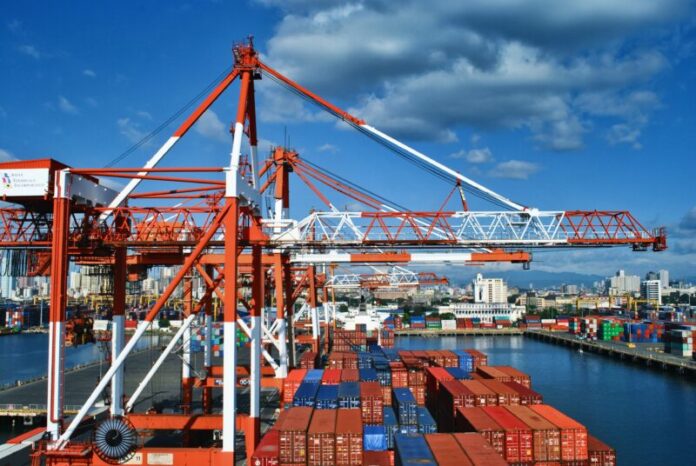
-
A consulting firm that will assist in implementing the World Bank-funded Philippine Customs Modernization Project will be awarded a contract on or before June 30, according to BOC Assistant Commissioner Vincent Philip Maronilla
-
After awarding the Project Supervision and Quality Assurance Services contract, BOC and the World Bank will start procurement for the Customs Processing System and other PCMP project components
The project supervision contract for the World Bank-funded Philippine Customs Modernization Project (PCMP) will be awarded on or before end of June, according to Bureau of Customs (BOC) Assistant Commissioner Vincent Philip Maronilla.
In a text message to PortCalls, Maronilla said the award of the Project Supervision and Quality Assurance Services (PSQA) contract follows the special bids and awards committee schedule.
The World Bank said the PSQA is a critical first procurement that will jumpstart the implementation of the PCMP, including key procurements.
Maronilla confirmed that BOC and the World Bank will start procuring the Customs Processing System (CPS) and other project components of the PCMP after the PSQA contract is awarded.
BOC requested in January 2021 for expression of interest from potential bidders as it intended to apply part of the proceeds, or P240.33 million, from the Bank’s US$88 million loan to the PSQA.
READ: BOC bids out P240M consulting services for modernization project
The PSQA assignment includes two broad task clusters. The first is project supervision and quality assurance services associated with information and communications technology (ICT) modernization.
This includes procuring and implementing the CPS; enterprise resources planning system as part of the organization development component; and Remote Image Analysis Center (RIAC) system and related infrastructure.
The second cluster focuses on organizational development, change management, capacity development, support to improve integrity in the workplace, gender inclusion and development, and other human resources interventions to ensure that new ICT capabilities effectively translate into business practices that conform with international standards and accepted good practice principles, and deliver maximum operational impact.
The PSQA contract was earlier expected to be awarded in December 2021 and the PSQA firm to be on board by January last year, a November 2021 implementation status and report by World Bank said.
In its latest implementation status and results report in February 2023, the Bank said the appointment of the PSQA contractor was pending due to additional time needed by BOC to perform the financial, technical and legal assessment of the most qualified bidder, and finalize the terms of reference for awarding the PSQA consultancy contract.
“Therefore, the delay in the award of the PSQA contract has impacted the preparation and implementation of the rest of the project activities,” the report added.
Once the PSQA contract is awarded, the BOC Project Management Unit (PMU) will focus on the completion of the bid documents for the procurement of the administrative back-office enterprise resource planning system and RIAC Center feasibility study, whose implementation can be accelerated.
The PMU met recently with WB to conduct a joint midterm review mission for the PCMP. The review provided an opportunity to identify and address factors that may affect project execution, as well as assess the ongoing relevance of the project development objective, which informs the significance of the project’s components and activities.
PCMP is expected to improve the country’s customs administration through streamlining, automation, and development of a world-class CPS.
The World Bank’s Executive Board approved the loan for the project in October 2020. The project was introduced by the Washington-based lender in 2017 and was approved by the National Economic and Development Authority Investment Coordination Committee-Cabinet Committee on March 6, 2020.
It was officially launched in March 2021.
RELATED READ: BOC launches Customs Modernization Project, eyes full modernization by 2024
The project has a total cost of $104.38 million, of which $88.28 million will be funded through World Bank’s official development assistance, and the balance shouldered by the borrower.
BOC, supervised by the Department of Finance, will be the implementing agency, responsible for project execution and for ensuring project development objectives are met.
A project steering committee, chaired by the Finance secretary and composed of other agencies critical to the operations of BOC, was also created with the main task of providing policy guidelines for the implementation of the PCMP.
Traders, exporters, importers, port operators, shipping companies, and transport providers – many of them small and medium enterprises employing many workers – are expected to benefit directly through reduced transaction costs and enhanced predictability and transparency of the clearance process.
The project’s technical design forms an interlocking set of reforms to address the issues and challenges BOC faces, with focus on automation to improve the bureau’s processes and integrated systems.
The CPS will also improve adherence to international standards and conventions on customs processing, provide audit trail for transactions, and allow for greater transparency and less opportunity for corruption.
PCMP is also expected to create a simplified, faster, and more user-friendly experience for compliant traders, with the CPS supporting enhanced intelligence in targeting and discovering high-risk cargo as well as compliant traders. This is expected to expand the country’s tax and duty base and “lead to an in increase in government revenue without implementing additional taxes.”
World Bank country director Ndiamé Diop had said earlier that similar customs reform projects by the Bank in other countries have led to an actual increase of between 11% and 300% in revenue collection. – Roumina Pablo




